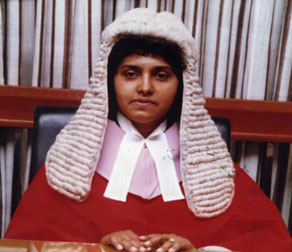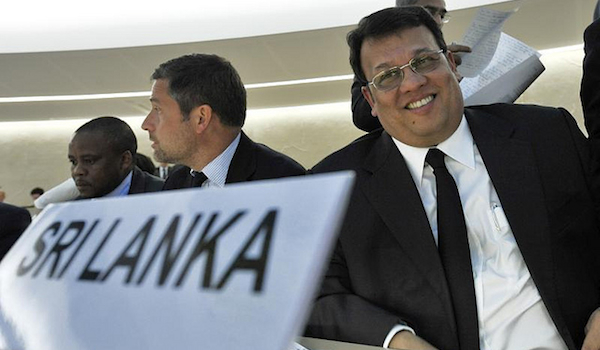Unprecedented diaspora Tamil meeting with young cross party Sri Lankan parliamentarians
Written By Sri Lanka Guardian on October 31, 2012
by Our London Correspondent Geeta Vamadevan
 ( October 31, 2012, London, Sri Lanka Guardian) The second successful meeting of the well intended cross party Sri Lankan parliamentarians and the representatives of the different political parties was held in South London on 27 (Saturday) October 2012. The meeting was the follow up of the fact finding mission of the young Sri Lankan parliamentarians in December 2011.
( October 31, 2012, London, Sri Lanka Guardian) The second successful meeting of the well intended cross party Sri Lankan parliamentarians and the representatives of the different political parties was held in South London on 27 (Saturday) October 2012. The meeting was the follow up of the fact finding mission of the young Sri Lankan parliamentarians in December 2011.
The engagement is the joint effort of the One Text Initiative, The Royal Commonwealth Society and the International Alert. Tamil Information Centre (TIC) was the co-hoister of both the meetings. Vasantha Senanayake MP (SLFP/UPFA), Harin Fernando MP (UNP) and Ragu Balachandran (TNA) participated in the latest follow up meeting.
The latest meeting held in the South London considered the recommendations of the representatives who undertook the 2011 visit. The end product of the 2011 meeting was the thirteen points recommendations to the government and it was widely circulated by the TIC before the meeting. In the hard talking meeting of 27/11, multitudes of matters were discussed and the Diaspora Tamils and Sinhalese had the opportunity to air their views and dissect the socio-political-war crimes-good governance issues. The recommendations of the parliamentarians were:
Accountability – If proper investigations followed by perpetrators of acts contrary to aforesaid rules of engagement are prosecuted, greater confidence will be achieved.
Insufficient and inadequate circulation of positive measures taken by the Government – In this context the Government information centers, the Diplomatic Missions and media units have to be more proactive and aggressive.
Furnish more comprehensive information – It is vital to know who is still in Governmental custody, and in some instances to know who is declared dead, as this can bring closure to some families still living with uncertainty.
Resettlement of IDPs – Even though this has been accomplished to a great degree it has not happened in its entirety due to
various reasons. In this context, the issue of long term displaced Muslims from the North and East, camped in Districts like Puttalam, in some cases for over two decades, is also very urgent.
Language issues – A practical means of educating both communities in both languages with an added advantage of English education as well is recommended.
The Government should make direct overtures to the Diaspora – While making direct overtures to the Sri Lankan
Diaspora, the Government should be aware that while it should educate the Diaspora on what is happening in the country, they should also be prepared to listen, sometimes even to criticism which can be constructive.
A Ministry/Department to handle and co-ordinate Diaspora affairs – Such a Ministry should be created and a person with sensitivity to such matters appointed to head such an institution.
A day of National Remembrance – Despite the President’s National Message immediately after the war had ceased; many
Tamils are of the view that the grand victory celebration held yearly appears to them as a victory of Sinhalese over Tamils.
Preservation of the Tamil identity – Be particularly sensitive to Tamil cultural identity and accordingly introduce local administration and mechanisms having adequate powers of protection to keep their heritage intact.
Military presence – Create a fair balance in which the overwhelming military presence is reduced to give a greater degree of independence in day-to-day activity including commercial activity to Northern civilians.
To engage in discussions – It would be prudent to discuss with all relevant parties to arrive at the most appropriate manner in which some form of devolution should take place.
A more conducive environment for investment – Such an environment to be facilitated within Governmental Departments, particularly, where foreign investment is concerned. A more effective anti-corruption policy and more efficiency be created within Government institutions.
LLRC Recommendations- Implement the recommendations without much delay.
The report was well received by the audience, whilst few privately expressed their reservations that the recommendations will not achieve anything with the entrenched mind-set of the government that will undermine any effort like many other recommendations and dialogues of the past.
At the meeting, criticisms were levelled at the government of Sri Lanka on variety of issues ranging from systematic state backed Sinhala settlements in the Tamil areas, militarisation, war crimes, victory celebrations and many other issues that are frustrating the peaceful transition to good governance practices in Sri Lanka.
Both parliamentarians made positive notes about the need for a broader reconciliation process and their personal feelings of one community celebrating the victory over the others downfall. They expressed their personal experiences and opinions of regret about the war victory celebrations in May 2009.
The parliamentary delegates said that their recommendations have been presented to the political leaderships with their personal engagement and have been sent to the leaderships of the Provincial Councils. Further efforts will be made to widen the engagement with the cross sections of the Sri Lankan community and the diplomatic missions in Sri Lanka.
In responding to a question of producing a one page report, the parliamentarians said that they prepared a brief document with the view to impact on the decision makers, as a long winded report would not have been read and only been shelved. They said that the media has picked up their recommendations already and there is wider debate in Sri Lanka on the recommendations.
In the climate of hate, prejudices, misconduct, misinterpretation and unwanted suspicions rampant in the conflict ridden and polarised Sri Lankan community that has its roots in the un-accommodative politics practice since independence and the unprecedented arm rebellion of the Tamil people for nearly thirty years, this meaningful engagement facing the traditional lopsided criticisms must be considered as a step in the right direction.
Ever-ready mechanisms and individuals are there to give unwanted spins to subvert any meaningful efforts. The key board tap campaign mechanism of the modern day is there to pounce and savage any good mission and the meaningful efforts of the young Sri Lankan parliamentarians had its lacklustre grinding of the vested interests that are determined to derail any process of goodwill efforts.









 The Human Rights Institute of the International Bar Association (IBAHRI) says that the reported attempt by the Sri Lanka government to impeach Chief Justice is perceived as a politically motivated move to curtail the independence of the judiciary.
The Human Rights Institute of the International Bar Association (IBAHRI) says that the reported attempt by the Sri Lanka government to impeach Chief Justice is perceived as a politically motivated move to curtail the independence of the judiciary.






